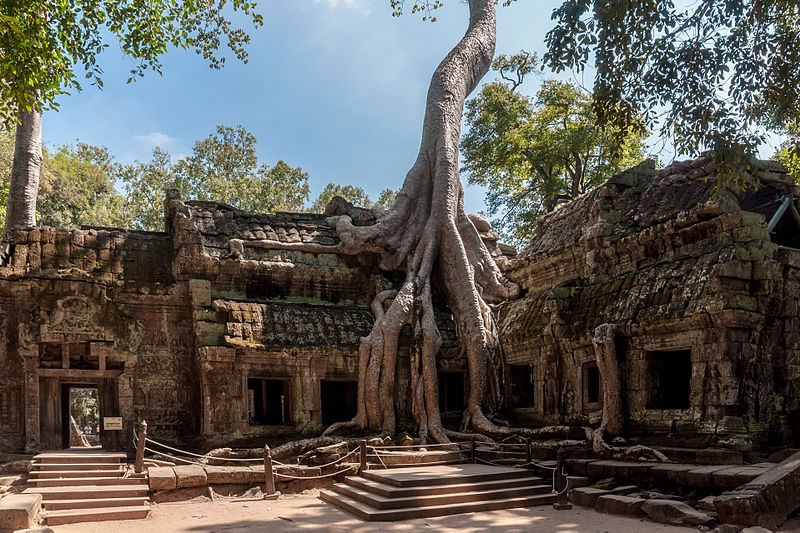‘Aw-koon’, we chirped in chorus to the waiter, as he led us through the garden, beneath a woven roof of lanterns and leaves. After a day of losing ourselves in the labyrinth of temples at Angkor, we were ready for dinner, and Marum looked promising.
Inside the restaurant, a stream of colours was flowing from wall to wall — hand-painted canvases featuring ripe fruit dangling from twisted trees. The menu was just as vibrant: lotus and jackfruit hummus, red tree ant stir fry, taro and shiitake dumplings.

Marum Food. Courtesy of The Tree Alliance
At first glance, Marum may seem simply an enchanting setting with delicious food. But a few clues scattered around the restaurant reveal its mission: staff uniforms marked with the word 'student' or 'teacher'; a pile of pamphlets about the Child Safe Movement; posters in the bathroom with disturbing facts about the institutionalisation of children to meet the demands of voluntourism.
This restaurant is part of the TREE alliance, a group of establishments which train young people who are at risk of social exclusion and exploitation. They provide them with the skills to work in the hospitality industry and employ them at their restaurants in Sihanoukville, Siem Reap, Phnom Penh, Vientiane, Luang Prabang, and Yangon.

Marum - Student and Teacher. Courtesy of The Tree Alliance
Tourism is, without a doubt, a tool for development. In recent decades, policymakers around the world have discovered the economic benefits of promoting their country as a tourist destination. Nevertheless, the proliferation of overseas travel has also worsened the exploitation of local communities and resources, escalating environmental degradation and rampant inequality.
Be it the advertisements for elephant rides or orphanage visits, the sinister aspects of tourism are ubiquitous in Cambodia. Sometimes we can convince ourselves that as long as we’re not participating in these activities, we have the right to turn a blind eye.
Actually, we don’t. Having the financial means, the health, the passport, the travel companions to be able to experience worldwide adventures is a great privilege. Following the logic of the worn-out saying, as travellers, we, therefore, bear a responsibility to make ourselves uncomfortable with the truth.
We spend hours researching the best low-cost eateries and the easiest travel links, but do we spend enough time looking into the ethical and environmental implications of the ways in which we travel and the activities we get involved in? Our curiosity may extend to learning a few phrases in the local language or to reading up about traditions or customs, but do we inform ourselves about the social, political and economic context of our destination? Ignorance is complicity when people’s lives and livelihoods are at stake.
Although our visit may be fleeting, the places we visit have existed long before and will exist long after we decide to pass through. A system of life unfolds, twisting and turning through history. ‘Marum' comes from the moringa tree, which is also known as the ‘tree of life’. Let’s not chip at the roots before the flowers have a chance to bloom.
- Moni



